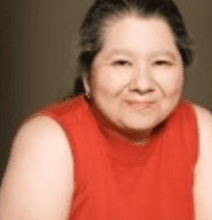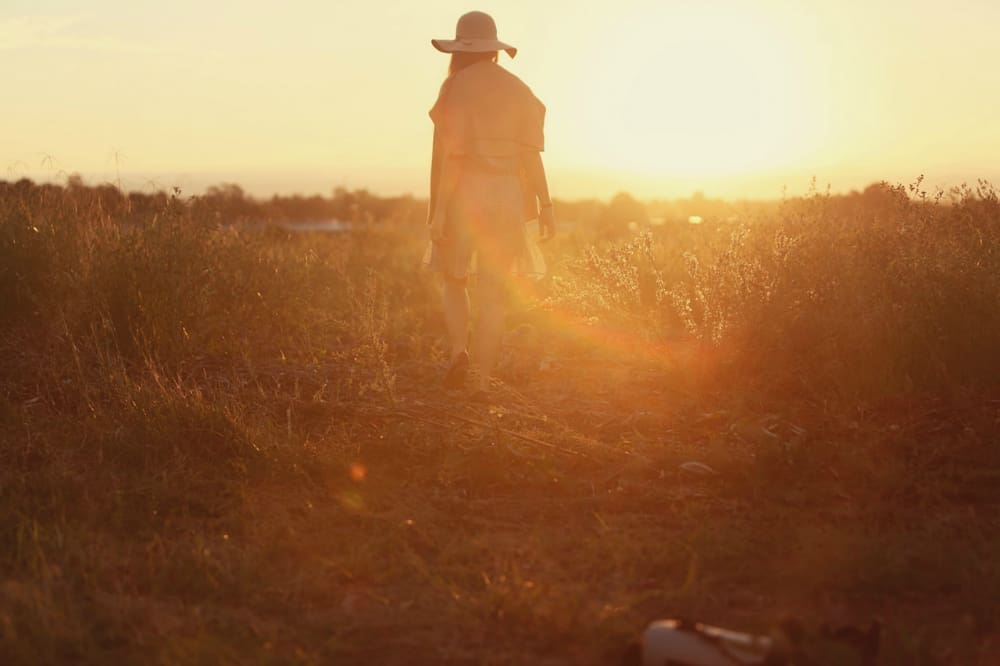It’s been almost 12 years since you left me and this world. In that time I have had more than my fill of time to think about our life together and process where everything went wrong and what was right about it. After you first died, the house rang with emptiness and I was consumed with loneliness and fear. You know I had never been on my own — always with you and that I didn’t really know how to be alone and I was very afraid of the idea of being on my own. True to my BPD diagnosis, the fear of abandonment was excruciating for me. For the first six months I struggled to sleep at night because I was so afraid of the quietness of the house.
My fear became almost palpable. I soon stopped being able to go out of the house except to go to the grocery store or the bank. My world shrank to just the walls inside which I lived. My only companion became the television set in front of which I spent all my time from the moment I woke up in the morning until I crawled back into bed. I became isolated and my social connections dried up entirely. This happened I think because my BPD had tended to make me cut off people. You were my link to friends and friendships, my connection to the world of other people.
During those first three terrible years as I struggled to make sense of things I didn’t really have time to miss you except in terms of the practical ways described above. I did, however, spend a lot of time thinking about our marriage and all the ways in which it both fulfilled me and stifled me. I have come to appreciate you in ways I never would have had you not died and left me behind.
You understood my BPD in ways that no one else ever could. You understood my need for acceptance and as much “unconditional love” as possible. You understood the raging, destructive anger and where it came from even though you didn’t condone it. You understood the vulnerability that hid behind the fear of the world at large and you had the soothing balm to calm it — something no one else ever had.
So, now what do I want to say to you?
I want to tell you how sorry I am that I was not able to appreciate and accept the love you had for me when you gave it. I want to tell you how sorry I am for all the ways I rejected you and belittled you when I was raging. I want to apologize for the ways I screamed and yelled at you all night sometimes, the way I would call you in a panic in the middle of the day and beg you to come home to take care of me. I want to apologize for the way my BPD did not allow me to be soft and gentle with your love and instead always flung it back in your face like a dagger when you reached out to caress me.
Even though I know you know I want to tell you that I chose you for a very specific reason, because I knew you would never leave me. And you never did until I made things so terrible that you had no choice and you packed your bags and left the house. You didn’t storm out of the house in anger, though, rather you left in a sort of quiet resignation that something you had always known would come to pass had finally occurred. I want you to know that I understand why you did that and I forgive you for it because I realize now that I was the one at fault. I want to tell you that I forgive you for all the ways I thought you failed me because now I see that I held you to an impossibly high standard and I know that it was so unfair of me to do so.
And mostly I want to tell you that I miss you. Even though I could never tell you when you were living, I loved you more than words could express. My BPD made it impossible for me to accept your love and return it in any kind of meaningful way. I’m sorry for all of that. But I know that you alone realized and understood how sick I was.
[irp posts=”9431″ name=”Anger and Borderline Personality Disorder – Why it Happens & How to Manage It (by Dee Chan)”]
About the Author: Dee Chan

Dee Chan was diagnosed with BPD more than 35 years ago back when the diagnosis was still fairly new and not very well understood. She has been living with it and coping with it ever since and finding ways to thrive despite it. She has been able to put it into complete remission and turned her life around completely through the practices of gratitude, forgiveness and accountability. Find out more about Dee’s work on her website bpdnomore.com.


Thanks for sharing. I’m suffering from BPD too, and my husband just left me since last month, and we are in the process of divorce. I can feel you when you wrote down all the apologies for your husband. My behaviors were totally like yours. He has been together with me 3 years, he has an anxiety issue before he met me. He told me due to his own issue he cannot continue this marriage anymore. This marriage is killing him inside. We have told to each other “you are the love of my life”. I thought we will be together forever. He is still the love of my life, but I can feel his pain and hate myself so much. Your article comforts me at this difficult time Thank you
Thank you for having the courage to tell your story. Very insightful and moving.
This is a mirror version of where I currently find myself.
My wife has moved 800 miles away and got a job on a one year contract mainly because all we ever did was bicker from the minute the sun rose to long after it set over absolute rubbish. She has been gone for two months and the loneliness I experience is verbatim to what you have described.
I used to be terribly OCD before she left and have got to the stage where I have stopped cleaning the house almost altogether and developed a terrible no-care attitude but after reading about what you had and him never coming home again to the chance of my love coming home one day has given me new hope.
I realise that change starts within and that that within is me.
Thank you for such a lovely article and may you grow stronger on a daily basis.
On the brighter side of things I am very lucky to have 3 dogs who are very patient with me and are slowly learning to talk “human” because believe you me they are all I have as company at the moment
Hello Bruce,
I hear that you feel lonely, and I am no stranger to those feelings, but may I offer some thoughts ?
I don’t think your wife has abandoned you, more that she has taken this opportunity to preserve her sanity and independence, and to afford you the opportunity of a little space to get a new perspective, and to grow.
When we busy ourselves with repetitive tasks (OCD) it can be a physical way of us not allowing ourselves time to deal with the real issues, and the “bickering” can just be a smoke screen to prevent us, or others, from seeing what the real problems are.
My late husband and I argued almost on a daily basis for 28 years, but he was the love of my life and still is.
We made a point every day, of never going to bed angry. Even in the middle of a heated row, one of us would say to the other “Just remember, I am your best friend in this world !” Then at some point, one of us would start laughing, seeing the futility of the argument.
If there is love, there is hope, if there is hope there is the potentiality for EVERYTHING !
So choose to be the person you want to be (you don’t have to keep being the person you were), and choose the quality of love you want to give, and to receive.
What you focus on, you get more of.
This is really important to note :
What you focus on you get more of !!!
So why not focus on what you actually want and need, rather than on what you don’t want and don’t need ? Focus on what is good and magical in your marriage, rather than what is not so great, and be grateful that you still have time together to celebrate your love for each other.
Easter is a time that reminds us of ultimate sacrifice, of death and re-birth. May this season fill you with inspiration, peace and deep joy.
Kind Regards Jacquie Athersmith
Dee, my heart goes out to you.
I lost my Husband in 2013, after 28 amazing years together, so I do understand how you feel.
The wonderful thing about your account, is that it validates your marriage. The good, the bad and the ugly. But most importantly, through forgiveness and understanding, you are showing the deepest love and respect, for your late Husband, and for yourself.
No one gets to be together forever, in this life and in this form. We share a journey, that can help us to grow, emotionally and spiritually. And however long or short that journey is, it should be celebrated and appreciated, because it is the greatest of gifts.
Love, is the greatest gift, and it’s the only one that really matters. Though your Husband is no longer here physically, the love you have for him, and the love he has for you, still is.
Death might take our lover, but it can never take our love.